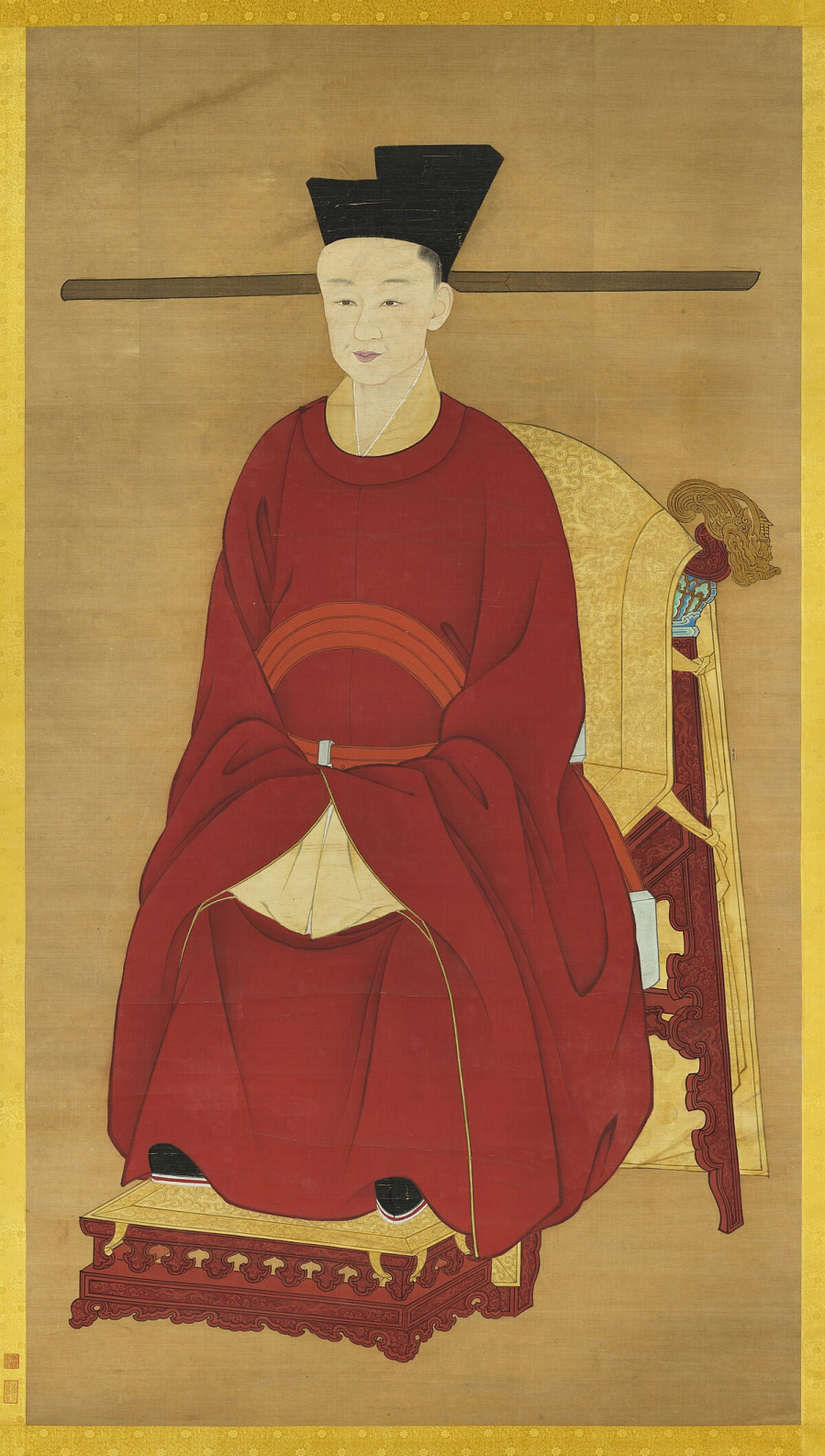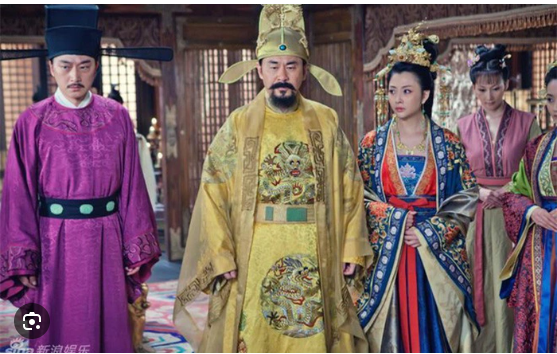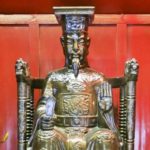The emperor during the feudal period was known as the heavenly ruler, with immense power. As a result, some kings neglected their court affairs and indulged in a luxurious lifestyle. History records that one Chinese emperor spent a night with 30 beautiful women, and this led to the downfall of his dynasty.
Emperor Tong Dao of China
Tong Dao (1240-1274), born Trieu Manh Khai, was the 15th emperor of the Song Dynasty in Chinese history and the sixth emperor of the Southern Song Dynasty. Tong Dao was the son of Prince Vinh Trieu Du Nguyet and the grandson of Emperor Li Tong – the 14th emperor. Since Li Tong had no children, Manh Khai was appointed as the crown prince.
In 1264, Emperor Li Tong passed away, and Manh Khai ascended to the throne at the age of 24. During his reign, Emperor Tong Dao was obsessed with wine and women, indulging in extravagant and wasteful activities while the people suffered. Beyond the border, the Mongol army ravaged, but Emperor Tong Dao was oblivious.

Tong Dao faced a tragedy that led to his early death in 1274, leaving the Song Dynasty without a proper adult emperor. Five years later, the Mongol army commanded by Hulagu Khan defeated the Southern Song Dynasty, officially unifying China.
Emperor Tong Dao’s Role in the Downfall of the Song Dynasty
During his 10-year rule, Emperor Tong Dao neglected state affairs and instead spent his days indulging in wine and revelry, disregarding the memorials submitted by court officials. History records that Emperor Tong Dao spent a night with 30 beautiful women. After being favored by the emperor, the next morning the concubines had to go and express their gratitude. The royal officials faithfully recorded the names of the concubines, ensuring that all had a chance to serve the emperor.
Among the grand ministers of the Song Dynasty at that time, Chancellor Gia Tu Dao emerged as the most influential figure, serving under Emperor Li Tong. Gia Tu Dao, who had a sister named Gia Quy Phi, was greatly favored by Emperor Li Tong and took advantage of this. Seeing Emperor Tong Dao’s weakness and susceptibility to deception, Tu Dao became more audacious and acted arbitrarily. Emperor Tong Dao granted special privileges to Tu Dao, allowing him to attend court sessions without having to announce himself.
Tu Dao even pretended to want to resign from his position, causing Emperor Tong Dao to bow down, give rewards of gold and silver, and grant him land, arousing discontent among the officials. Emperor Tong Dao became highly dependent on Chancellor Tu Dao. One day, there was a grand ceremony held in the palace, and suddenly it started to rain heavily. The attendants holding the umbrellas invited Emperor Tong Dao to go first, but he hesitated and asked for Gia Tu Dao’s opinion.

< p>At that time, the Mongol army posed a continuous threat to Xiangyang and Fancheng, two strategically important fortresses on the border. In the capital city of Lam An, Gia Tu Dao concealed the army’s movements and did not inform Emperor Tong Dao, leaving Xiangyang and Fancheng in a critical situation. General La Van Hoan, who was defending Xiangyang, had been besieged for 2 years, hoping for the imperial court’s rescue, but in vain.
In 1273, after 5 years of resistance, La Van Hoan surrendered Xiangyang, submitting to the Mongol army. With the power of their stone-throwing machines, the Mongol army poured into the territory of the Southern Song Dynasty, causing chaos in the capital city of Lam An.
In November 1274, Emperor Tong Dao, at the age of only 34, died after a debauched night with 30 beautiful women. Due to his neglect of state affairs, not only did the territory of the Southern Song Dynasty shrink, but it also marked the collapse of a dynasty.
After Emperor Tong Dao’s reign, there was no mature emperor in the Song Dynasty. The emperors who ascended the throne were still very young and incapable of governing. Meanwhile, the court was in turmoil due to the Mongol’s relentless attacks. In 1279, the young Emperor Bing, the sixth son of Emperor Tong Dao, only 8 years old at the time, along with over 100,000 soldiers, officials, and vassals of the Song Dynasty, drowned in the final battle with the Mongol army in Guangdong, marking the end of the Song Dynasty.
































